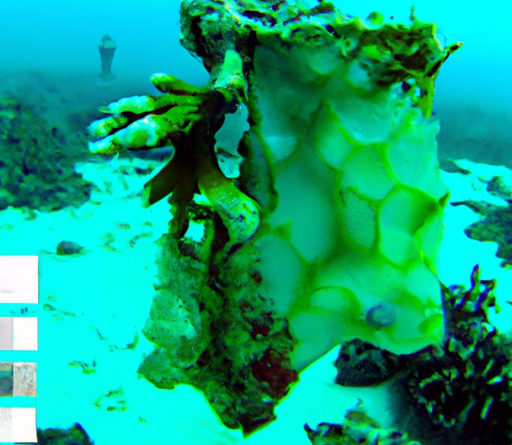
Did you know that the illegal collection of coral in Thailand can result in severe penalties? It is essential to be aware that collecting live coral, dead coral, and coral fragments without the proper permits is against the law. Typically, permits for coral collection are only granted for scientific research or reef restoration purposes and must be obtained from the Department of Marine and Coastal Resources (DMCR). As a responsible diver, it’s crucial to follow sustainable diving practices, which means avoiding physical contact with coral and marine life. Violating the regulations surrounding coral collection can lead to significant consequences, such as fines and imprisonment. Additionally, it’s important to note that the international trade of certain coral species, including coral souvenirs, falls under strict regulation by the Convention on International Trade in Endangered Species of Wild Fauna and Flora (CITES). To ensure legality and sustainability, it is advised to purchase coral souvenirs from reputable vendors who can provide proof of their origin. With red coral being highly regulated, its trade is restricted, making it even more essential to be cautious. So, the next time you consider buying coral souvenirs, think twice, as it could potentially cause trouble at customs, especially since some Thai airports have a complete ban on coral and shells on planes.
Illegal Collection of Coral in Thailand Can Result in Severe Penalties
Introduction
Exploring the issue of illegal coral collection in Thailand
Coral reefs are among the most diverse and important ecosystems on the planet, providing habitat for countless species and contributing to the overall health of our oceans. Unfortunately, in Thailand, the illegal collection of coral has become a significant problem, threatening these delicate ecosystems and the marine life that depend on them. In order to protect the coral reefs and ensure their sustainability, the Thai government has implemented strict regulations and penalties for those caught engaging in illegal coral collection.
Overview of Coral Collection Regulations
Types of coral that are protected
In Thailand, the collection of live coral, dead coral, and coral fragments is illegal without the appropriate permits. The government recognizes the importance of preserving the natural beauty and biodiversity of coral reefs and has established laws to protect them from further degradation. By law, all coral species are protected, including hard corals, soft corals, and black corals.
Law prohibiting collection of live coral, dead coral, and coral fragments
The collection of live coral, dead coral, and coral fragments is strictly prohibited under Thai law. This includes any form of interaction with coral, such as touching, taking pieces as souvenirs, or harvesting for commercial purposes. Violators of these laws can face severe penalties, including fines and even imprisonment.
Requirement of appropriate permits
Permits for coral collection are granted only for specific purposes, such as scientific research or reef restoration. These permits must be obtained from the Department of Marine and Coastal Resources (DMCR), which is responsible for managing and regulating coral collection activities in Thailand. It is essential for individuals and organizations to obtain the necessary permits before engaging in any coral-related activities.
Importance of Permits for Coral Collection
Purpose of permits
Permits for coral collection serve as a mechanism to ensure the sustainable management of coral reefs. By granting permits only for specific purposes, such as scientific research or reef restoration, the government can monitor and control the collection of coral, preventing overexploitation and damage to these fragile ecosystems.
Scientific research and reef restoration as valid reasons for permits
Scientific research plays a crucial role in advancing our understanding of coral reefs and their importance to marine ecosystems. Permits are granted to researchers who can demonstrate that their work will contribute to scientific knowledge and conservation efforts. Similarly, permits are also issued for reef restoration projects aimed at restoring damaged reefs and promoting their recovery.
Obtaining permits from the Department of Marine and Coastal Resources (DMCR)
The Department of Marine and Coastal Resources (DMCR) is the authorized agency responsible for managing coral collection permits in Thailand. Individuals or organizations interested in obtaining permits must submit a formal application to the DMCR, providing detailed information about the purpose of the collection, the specific coral species involved, and any research or restoration plans. The DMCR carefully reviews each application to ensure compliance with relevant regulations and issues permits accordingly.
Department of Marine and Coastal Resources (DMCR)
Role of DMCR in coral collection regulations
The Department of Marine and Coastal Resources (DMCR) plays a pivotal role in the regulation and management of coral collection activities in Thailand. It is responsible for overseeing the sustainable use of marine resources, including the issuance of permits for coral collection. The DMCR works closely with other government agencies, research institutions, and conservation organizations to ensure the effective implementation of coral protection measures.
Responsibilities of DMCR in granting permits
The DMCR evaluates permit applications based on their scientific merit, conservation value, and adherence to environmental regulations. They assess the potential impact of the proposed coral collection on the targeted reefs and surrounding ecosystems, ensuring that the activity is conducted in a sustainable and responsible manner.
Enforcement of coral collection laws
The DMCR, in collaboration with other law enforcement agencies, is responsible for enforcing coral collection laws and regulations in Thailand. This involves conducting regular inspections, patrols, and surveillance to detect and apprehend individuals or groups engaged in illegal coral collection. Violators face strict penalties, including fines and imprisonment, to deter further illegal activities.
Sustainable Diving Practices
Guidelines for divers to follow
Divers have a crucial role to play in the conservation of coral reefs. By following sustainable diving practices, they can minimize their impact on these fragile ecosystems and contribute to their long-term health and vitality. Here are some guidelines for divers to follow:
-
Avoid physical contact with coral: Touching or standing on coral can cause irreparable damage. Divers should maintain a safe distance and practice buoyancy control to avoid accidental contact.
-
Observe marine life from a distance: Divers should resist the urge to chase or handle marine life, as this can cause stress and harm to the animals. Respect their natural behavior and observe them without disturbing their habitat.
-
Do not feed marine life: Feeding marine life disrupts their natural feeding patterns and can lead to dependency on human sources of food. This can have negative consequences for the overall ecosystem.
-
Practice responsible photography: When taking underwater photographs, divers should be mindful of their equipment and avoid damaging or touching coral or other marine organisms. Flash photography may also harm sensitive species, so it is best to use natural lighting whenever possible.
Preserving the natural ecosystem
By following these sustainable diving practices, divers can help preserve the natural beauty and integrity of coral reefs. Their actions can inspire others to adopt responsible behaviors and ensure the continued existence of these invaluable marine habitats for future generations.
Consequences of Violating Coral Collection Regulations
Penalties for illegal coral collection
Violating coral collection regulations in Thailand can result in severe penalties. The government takes these offenses seriously due to the immense ecological value of coral reefs and the potential for irreversible damage. Penalties for illegal coral collection include fines, imprisonment, or both, depending on the severity of the violation.
Fines imposed for violations
Individuals caught engaging in illegal coral collection can face significant fines. The amount of the fine varies depending on several factors, including the type and quantity of coral collected, the intention behind the collection, and any previous offenses. Fines can range from a few thousand Thai Baht to hundreds of thousands of Thai Baht.
Imprisonment as a possible consequence
In addition to fines, those convicted of illegal coral collection can also face imprisonment. The length of imprisonment varies depending on the severity of the offense and any aggravating factors. Offenders can be sentenced to months or even years in prison, serving as a deterrent for future illegal activities.
Regulation of International Trade in Coral
CITES and its role in regulating coral trade
The international trade of certain coral species, including coral souvenirs, is strictly regulated under the Convention on International Trade in Endangered Species of Wild Fauna and Flora (CITES). CITES is an international treaty that aims to protect endangered species by regulating their trade and ensuring that it is sustainable and legal.
List of certain coral species under CITES protection
CITES has listed numerous coral species under its protection due to their vulnerability to overexploitation and declining populations. These include various species of Acropora, Montipora, and Pocillopora, among others. Trade in these coral species is strictly regulated, and permits are required for their import, export, or re-export.
Importance of proper documentation for legal coral trade
To ensure compliance with CITES regulations, it is essential for any trade involving coral to be supported by proper documentation. This documentation verifies the legal origin of the coral and provides evidence that it has been obtained and traded sustainably. Buyers and sellers should always request and retain relevant permits and certificates when engaging in the trade of coral souvenirs.
Restrictions on Coral Souvenirs
Strict regulations on international trade of coral souvenirs
The international trade of coral souvenirs is subject to strict regulations, both within Thailand and internationally. Many countries, including Thailand, have laws in place to control the import and export of coral souvenirs in an effort to protect coral reefs and promote sustainable tourism.
Prohibition of certain coral species
Certain coral species, particularly those listed under CITES protection, are prohibited from being traded as souvenirs or any other commercial purpose. This includes red coral, which is highly regulated due to its slow growth rate and susceptibility to overexploitation. In Thailand, the sale or possession of red coral souvenirs is strictly prohibited, and individuals found in possession of these items can face legal consequences.
Risks of buying illegal coral souvenirs
It is important to be aware of the risks associated with buying illegal coral souvenirs. Not only does the purchase of these items contribute to the illegal and unsustainable trade of coral, but it can also lead to difficulties at customs when traveling. Many countries, including Thailand, have strict regulations on the import and export of coral souvenirs, and individuals found in possession of illegal items may face confiscation, fines, or legal action.
Regulation and Ban on Coral and Shells at Thai Airports
Ban on coral and shells on airplanes
In order to prevent the illegal trade of coral and shells, some Thai airports have implemented a complete ban on the transportation of these items on airplanes. This ban applies to both domestic and international flights, and any coral or shells found in carry-on or checked baggage can be confiscated by airport authorities.
Trouble at customs for travelers with coral souvenirs
Travelers who attempt to bring coral souvenirs into or out of Thailand may encounter difficulties at customs. Airport authorities are vigilant in detecting and confiscating illegal items, and individuals found in possession of coral souvenirs without the appropriate permits can face consequences such as fines or legal action.
Advisory against buying coral souvenirs
In light of the risks and legal implications associated with the purchase and possession of coral souvenirs, it is strongly advised against buying these items. Instead, travelers should support reputable vendors who can provide proof of the legality and sustainability of their products. By making informed purchasing decisions, we can collectively contribute to the conservation of coral reefs and the protection of their fragile ecosystems.
In conclusion, the illegal collection of coral in Thailand poses a significant threat to the health and sustainability of coral reefs and their associated marine life. Through strict regulations, permits, and enforcement, the government of Thailand aims to protect these fragile ecosystems from further degradation. It is crucial for individuals and businesses to adhere to these regulations, follow sustainable diving practices, and avoid participating in the illegal trade of coral souvenirs. By acting responsibly and supporting conservation efforts, we can help ensure the preservation and longevity of Thailand’s beautiful coral reefs for generations to come.






